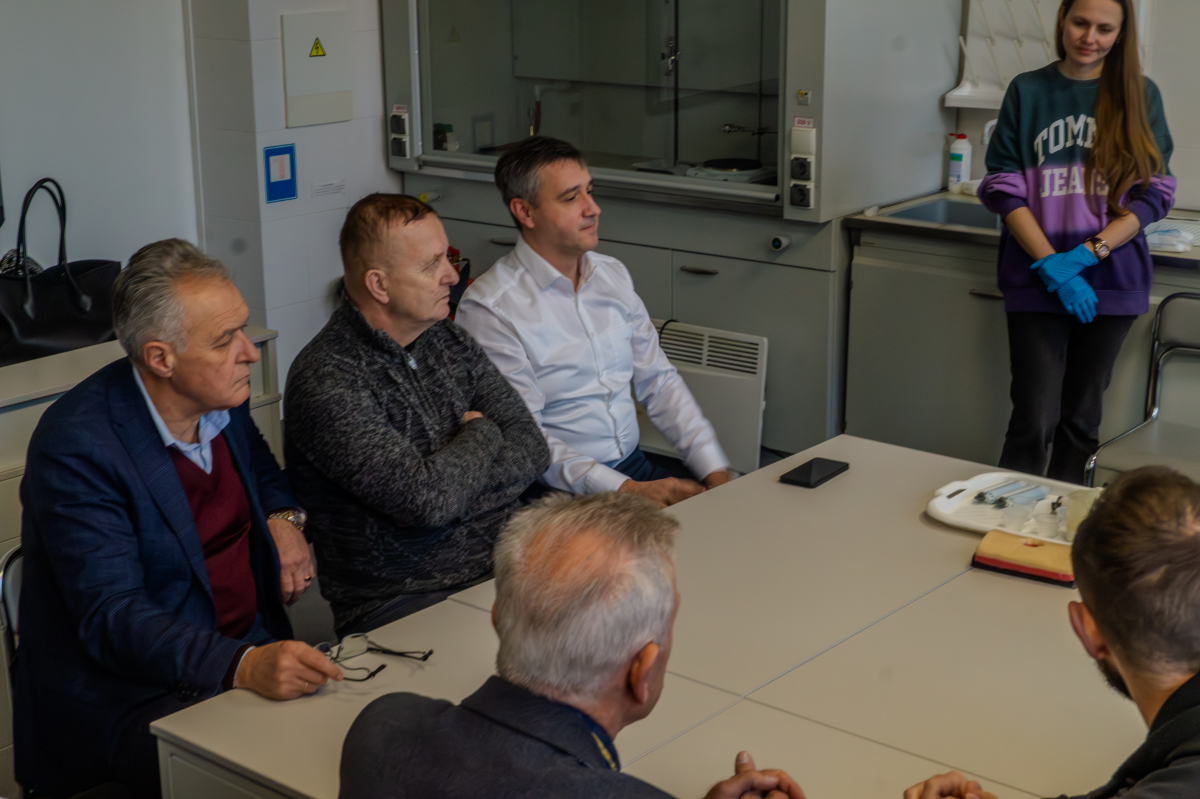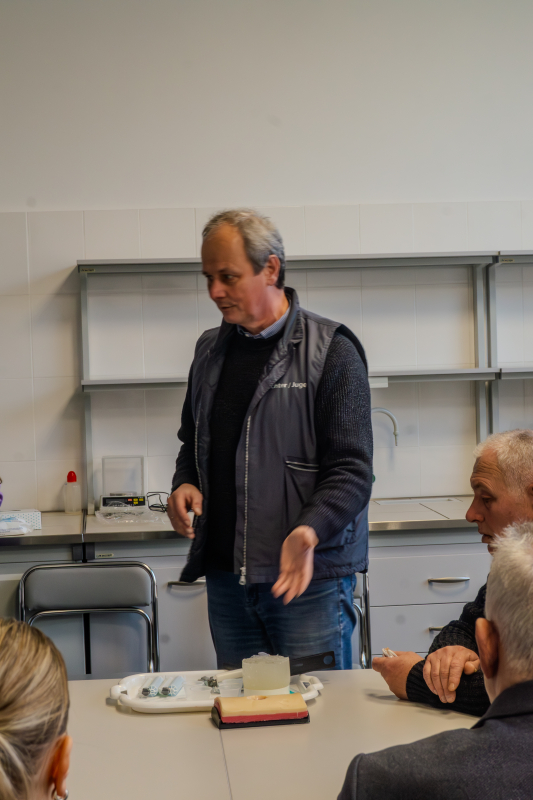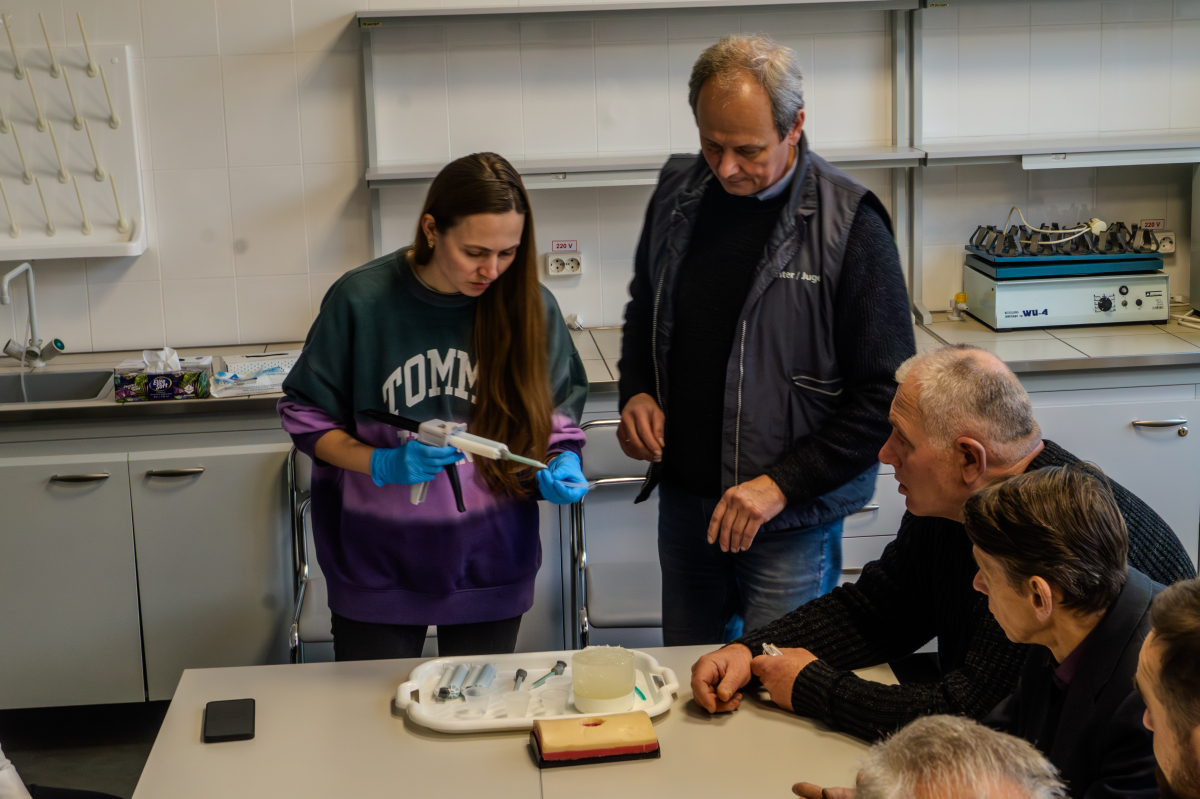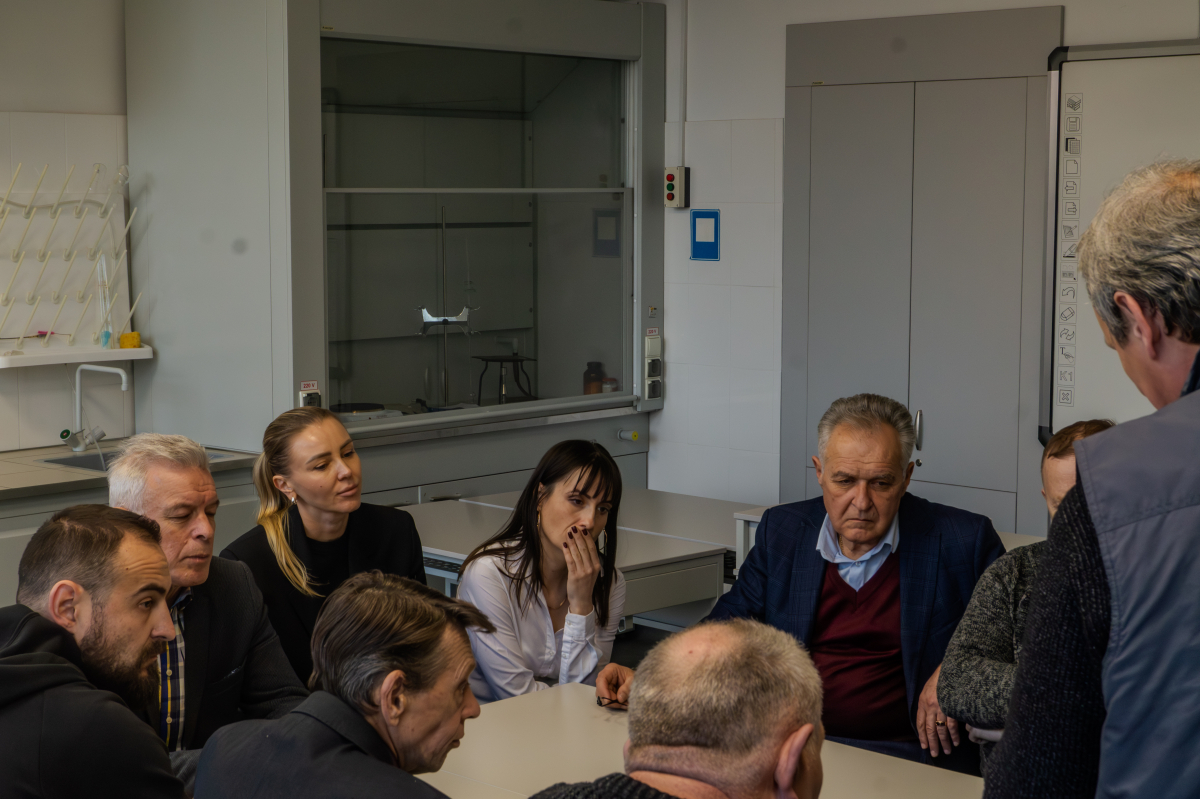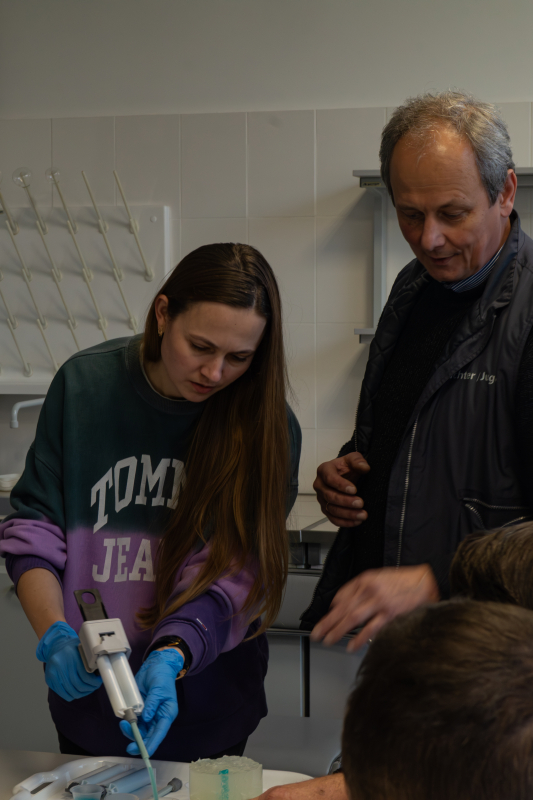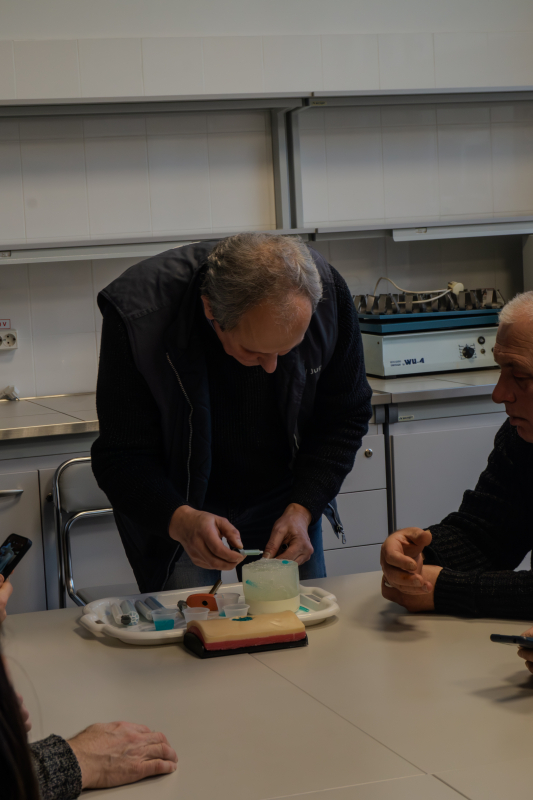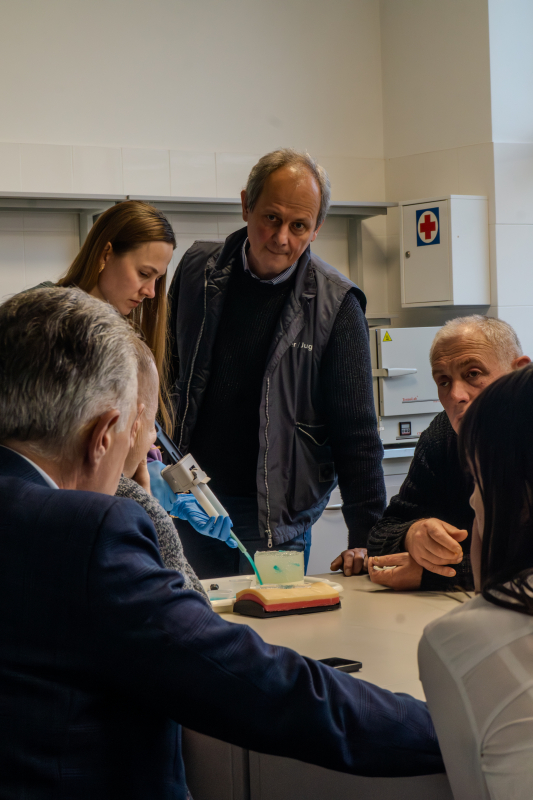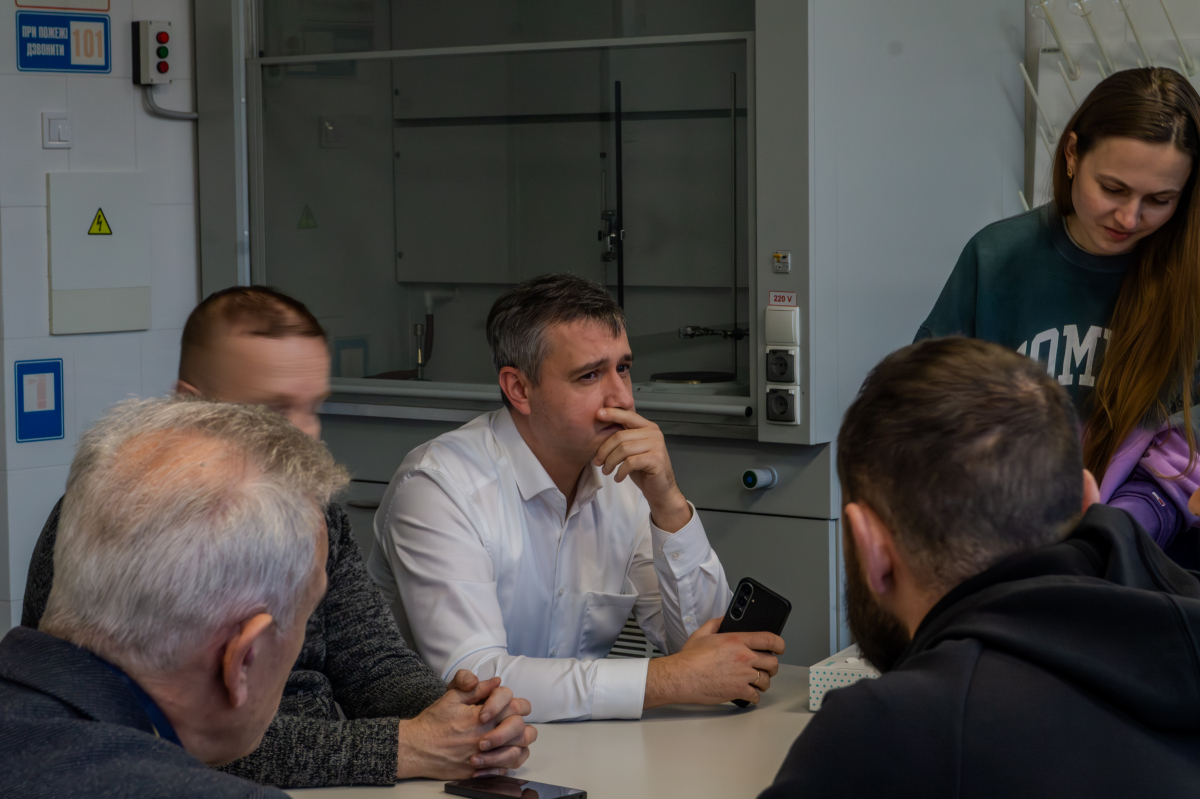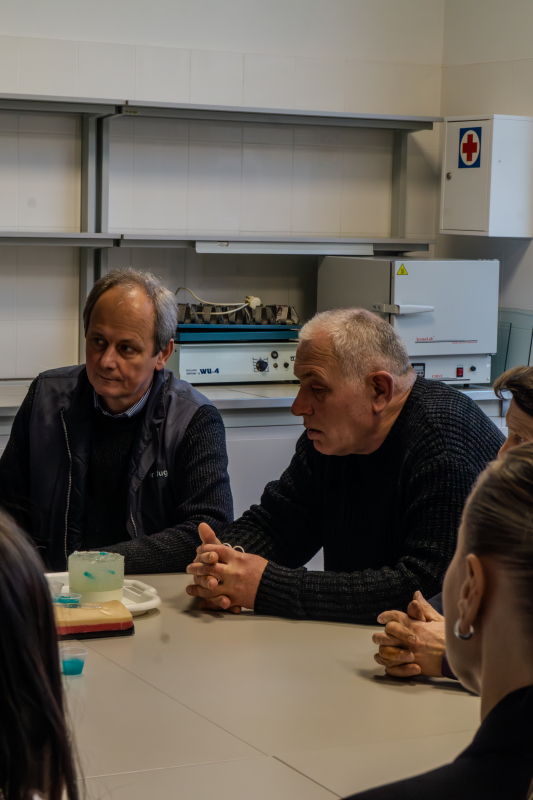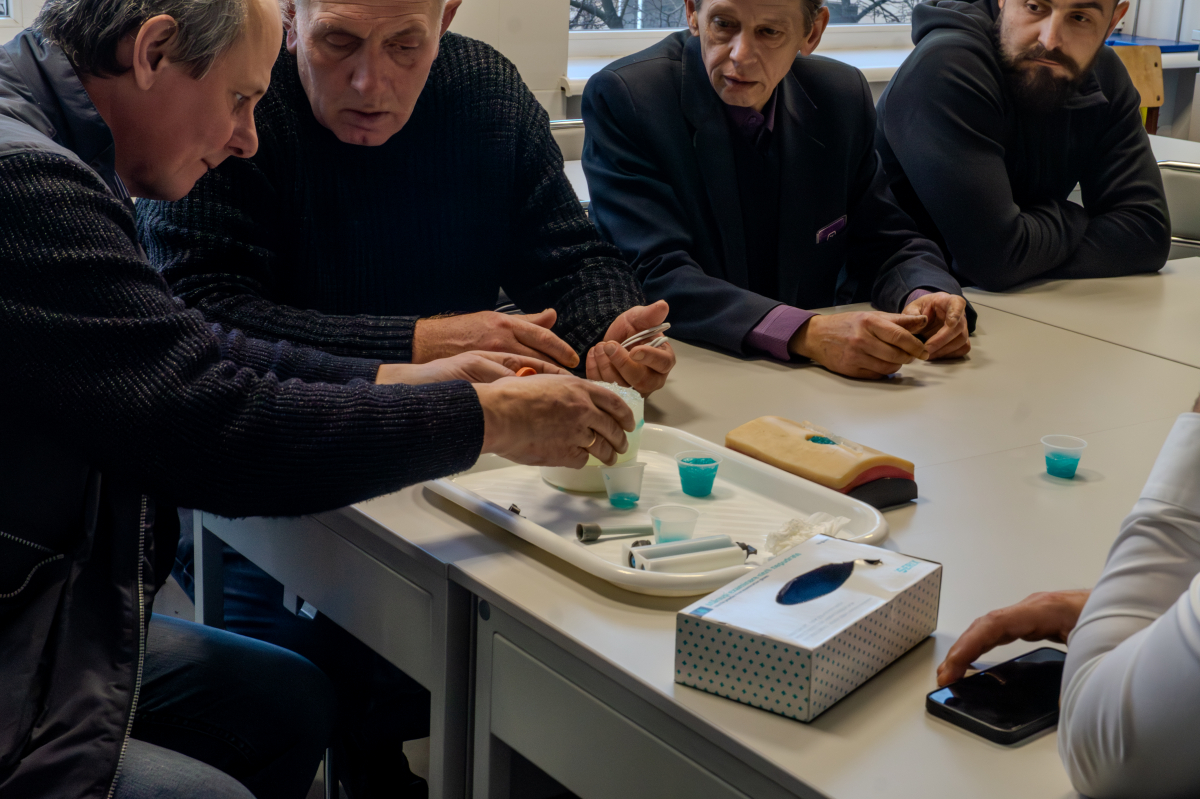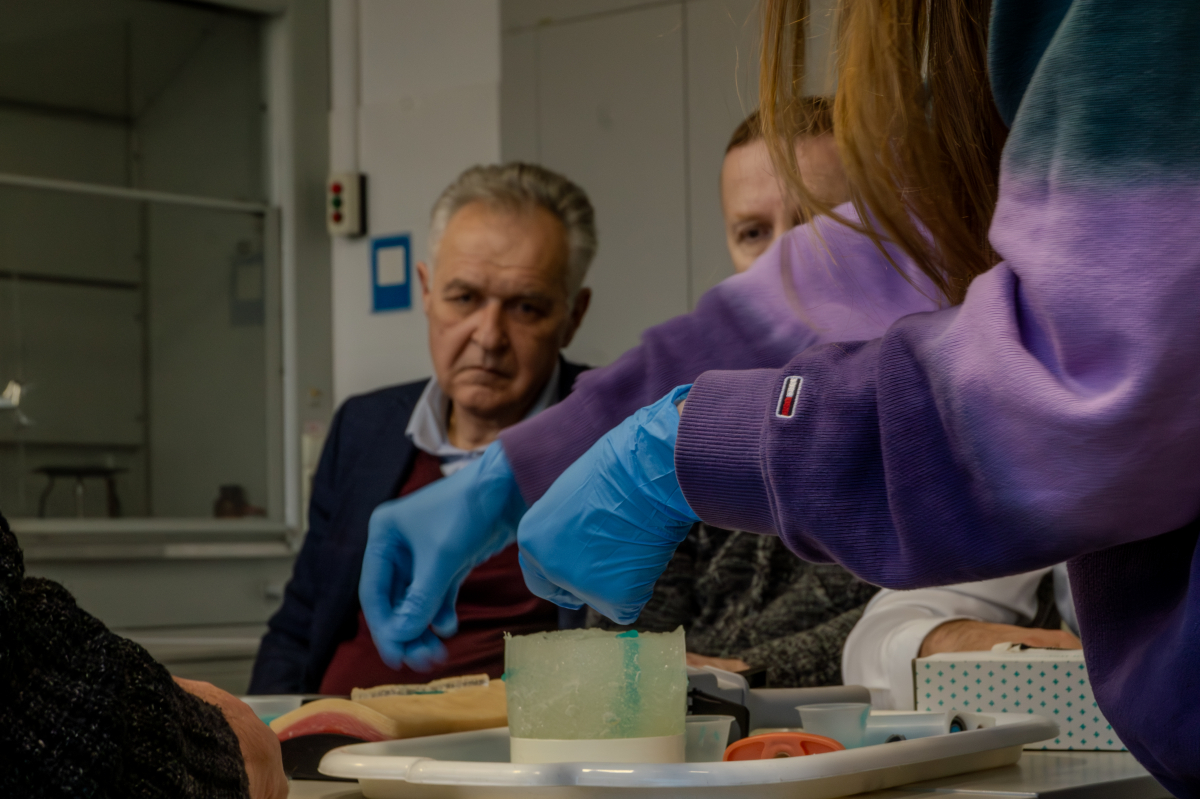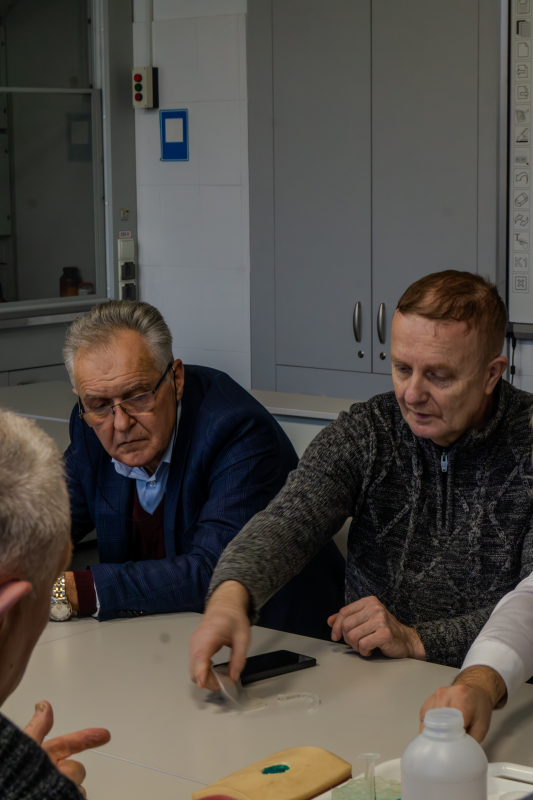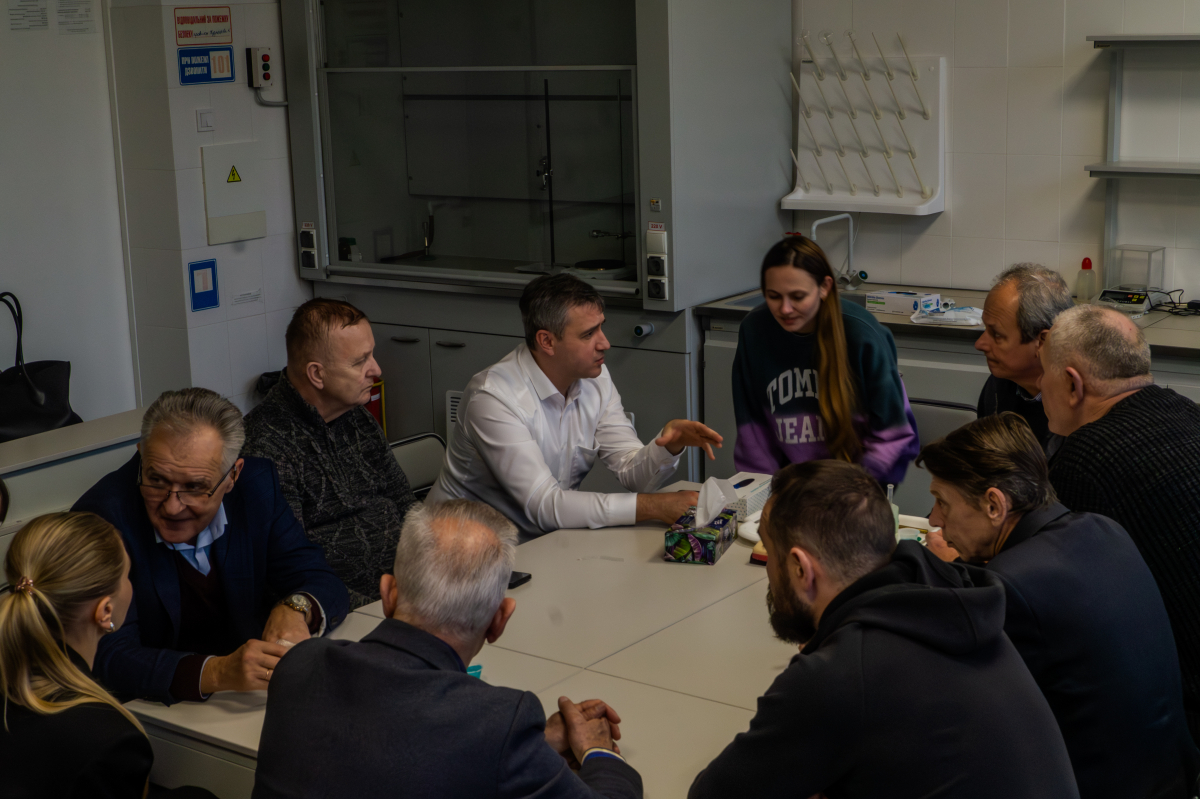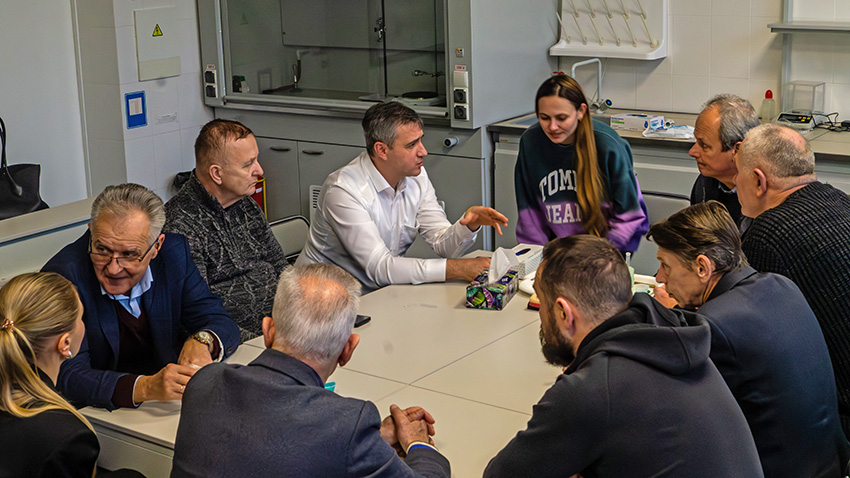These days, an interdisciplinary workshop was held at the Research Laboratory «Center for Research on Polymers and Medical Products», established within the framework of the project «Development of hydrogel medical supplies for emergency medical services in case of penetrating abdominal trauma within the creation of a research center for new polymeric materials for medicine», which received grant support from the National Research Foundation of Ukraine, dedicated to the creation of an innovative tool for surgical and endoscopic blocking of fistulas of internal organs. The event became an example of deep scientific collaboration and brought together specialists from general surgery, organic chemistry, molecular biology, clinical biochemistry and veterinary medicine, which made it possible to combine material science innovation with real clinical needs.
The staff of the Department of General Surgery of the Danylo Halytsky Lviv National Medical University – Professor Andrii Stasyshyn and Assistant Mykola Kushnirchuk attended the workshop. They provided detailed clinical recommendations on the properties of the material, the behavior of the hydrogel in complex anatomical conditions, and the possibilities of its application in the operating room and during endoscopic procedures. It was the surgeons who proposed to expand the direction of research and create a means based on the hydrogel composition that can effectively block the fistulas of internal organs, which became a key impetus for further joint developments. «The material must be controllable in action, safe and predictable in real clinical conditions», emphasized Professor Andrii Stasyshyn, outlining the needs of modern surgery.
Scientists from the Department of Organic Chemistry, the Institute of Chemistry and Chemical Technologies, Lviv Polytechnic National University, – Professor Volodymyr Samaryk, Professor Serhii Varvarenko and Junior Research Fellow Olha Maikovych – presented the possibilities of modifying the hydrogel composition, mechanisms for controlling its polymerization and adapting it to the requirements of minimally invasive interventions. According to Professor Volodymyr Samaryk, modern polymer materials make it possible to «to tailor the gel to a specific clinical task, resulting in a product with predictable properties».
During the workshop, the key technical and medical requirements for the product were finalized, including controlled hardening time, sufficient plasticity for delivery through endoscopic instruments, stability in the presence of aggressive internal secretions, and high biocompatibility and tissue safety. The material has already been demonstrated on anatomical models, with the specifics of surgical manipulation taken into account. Preclinical testing protocols are currently being developed, and documentation is being prepared for submission to the Ethics Commission for Scientific Research, Experimental Developments, and Studies Involving Laboratory Animals at Danylo Halytskyi Lviv National Medical University.
Photos by Serhii Tsykunkov
